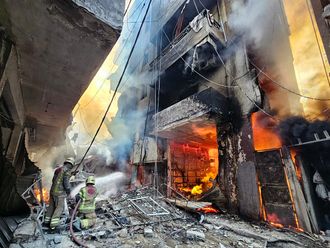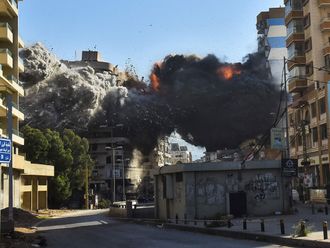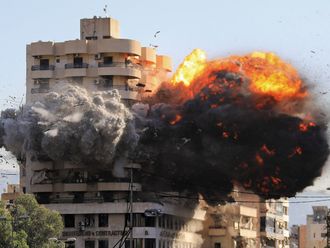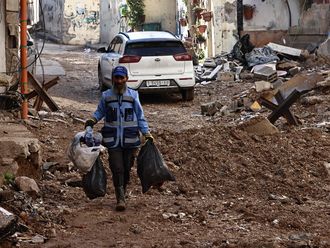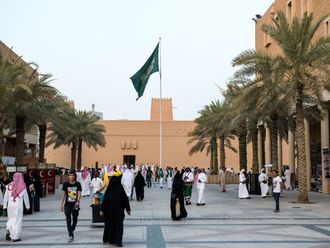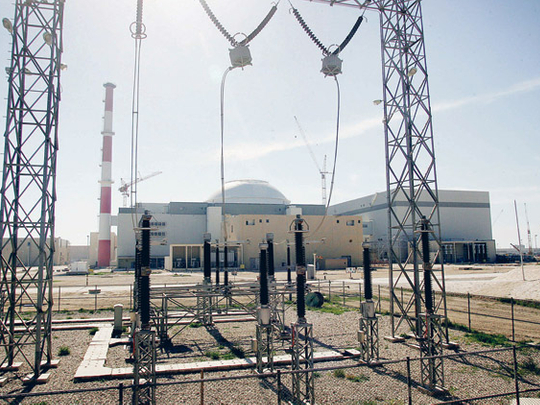
Manama: Gulf Cooperation Council (GCC) states will meet on Sunday to look into ways to address potential disasters linked to radiation leaks from the Iranian city of Bushehr where the country’s only nuclear power plant is located, diplomats have said.
The special meeting in the Saudi capital Riyadh follows the earthquake that on Tuesday jolted the Iranian city and raised grave concerns about safety standards, the diplomats told Saudi daily Al Watan.
Shockwaves from the earthquake that reportedly killed at least 37 people and injured more than 800 were felt in major cities in Bahrain, Kuwait, Qatar, western Saudi Arabia and the UAE and several high-rise buildings had to be evacuated. GCC nationals have repeatedly warned that the nuclear plant was a direct threat and attributed their concerns to the “mystery about its safety standards” and to “the proximity of Bushehr.”
They argued that the plant was closer to their homes than to the Iranian seat of government or parliament in the capital Tehran. “The meeting will review the emergency plans for each of the member countries,” the diplomats who were not named said. Bahrain, Kuwait, Oman, Qatar, Saudi Arabia and the UAE form the Gulf alliance established in 1981 in the UAE capital Abu Dhabi.
“The earthquake on Tuesday was not far from the nuclear plant, but it could extend to it and we have to be ready for this ominous possibility,” the diplomats said. “Everything is possible and the seismic activity could well affect the plant anytime. We need to make sure we can tackle incidents and plan ahead to be on the safe side.” The diplomats said that the GCC had opened direct channels with the International Atomic Energy Agency (IAEA) on the issue.
Reports said that the earthquake last week was around 90 kilometres from the nuclear plant. Iranian officials have said that the 6.1 magnitude earthquake did not cause any leak and that the Bushehr plant was designed to withstand tremors of up to eight on the Richter scale.
Least secure
This month, Carnegie Endowment for International Peace, the US-based think tank, said in a report that Iran’s “nuclear materials and stockpiles are some of the least secure in the world.”
“Critical questions about the programme’s economic efficacy and safety have been left unanswered” and “most ominously, the Bushehr reactor sits at the intersection of three tectonic plates” the report said.
Iran is the only nuclear state that is not a signatory to the Convention on Nuclear Safety, it said. According to Carnegie, the Bushehr nuclear reactor took nearly four decades to complete and cost almost $11 billion (measured in today’s dollars) (Dh40.4 billion), making it one of the most expensive reactors in the world.
“Bushehr provides merely two per cent of Iran’s electricity needs, while 15 per cent of the country’s generated electricity is lost through old and ill-maintained transmission lines.” The report said that “despite aspirations to be self-sufficient, Iran’s relatively small uranium resources will inhibit the country from having an indigenous nuclear energy programme.”


